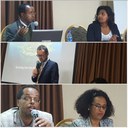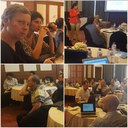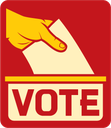
On 27 August, the Center for Federal Studies of the Addis Ababa University convened a seminar on the Sustainable Development Goals and Beyond: The 15 years Democratic and Developmental Role of Local Government in Ethiopia.

On 27 August, the Center for Federal Studies of the Addis Ababa University convened a seminar on the Sustainable Development Goals and Beyond: The 15 years Democratic and Developmental Role of Local Government in Ethiopia.

Dullah Omar Institute’s Associate Professor Derek Powell has published a book titled State Formation After Civil War: Local Government in National Peace Transitions.

The national government, provinces and municipalities play key roles in development and deepening of democracy. However, they face serious challenges: intergovernmental conflicts, maladministration and corruption. A key event will be the local government elections of August 2016, indicating the importance of metropolitan governments as well as the sphere of local government as a whole. This unique, full-time programme deals with the law, policy and practice of multi-level government in South Africa. It combines class room teaching with a practical internship at an institution multilevel government (including municipalities, province, Parliament).

Prof De Visser, Director of the Dullah Omar Institute and local government expert has been providing expert analysis in various media on the 2016 elections and on coalitions. He explained the rules governing elections and particularly the rules impacting on the efforts to build coalitions in so called 'hung councils'.

On 28 and 29 July, Prof Jaap de Visser participated in an Expert Group Meeting, convened by UNHABITAT on the sidelines of PrepCom 3 in Surabaya, Indonesia. PrepCom 3 was the third meeting of the Preparatory Committee, established by the UN to prepare for HABITAT 3 in October 2016 in Quito.

On 20 July, Jaap de Visser addressed a seminar convened by the Friedrich Ebert Stiftung to mark the launch of the book "Electing Councillors" and the video "Do you know what you are voting for? He shared the platform with Deputy Minister Andries Nel who delivered the key note address.

Jaap de Visser and Nico Steytler, both professors at the Dullah Omar Institute, have written a manual entitled: “Electing Councillors - A Guide to Municipal Elections” which explains the rules for local government elections. It discusses the rules for voter registration, party registration, ward candidates and party lists. It also explains what happens on voting day, how votes are counted and how results are determined.

On 3 August, millions of voters will exercise their right to vote and decide who controls South Africa’s 257 municipalities. The stakes are high because municipalities deal with basic services and parties are competing for control of powerful cities, such as Johannesburg, Cape Town and eThekwini.

The director of the Dullah Omar Institute, Prof Jaap de Visser gave an enlightening seminar on Multilevel government in South Africa. This took place at EURAC in Italy, where he is guest researcher for the month of July.

South African Research Chair (SARChI) in Multilevel Government, Law and Policy offers two full-time doctoral (LLD or DPhil) bursaries, commencing in the 2017 academic year. The study may focus on South Africa’s system of cooperative government, including provincial and local government, fiscal relations, and comparative federalism.

Prof Benyam Dawit Mezmur, who is currently an Acting Director of the Dullah Omar Institute, Faculty of Law, at the University of the Western Cape was elected into UN Committee on the Rights of the Child with the highest votes of 152 states together with Mikiko Otani from Japan. Mezmur is being re-elected into the Committee for a second term. He currently serves as its Chairperson, a position he was elected into by his colleagues in the Committee last year May, when he became the youngest, and the first Chairperson of the Committee from Africa in almost 15 years.
A comprehensive audit of the criminal justice system in Kenya points toward avenues for reform.